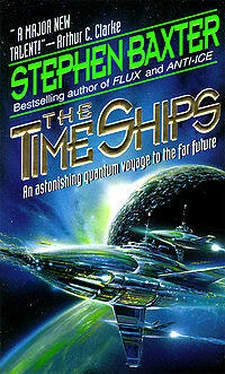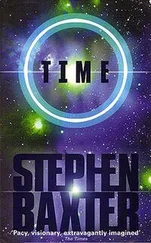For my part I was pleased that Moses seemed to be shaking off his timidity, and was showing interest in the world in which we found ourselves. I listened to what he had to say with fascination.
“These youngsters are all highly likable,” Moses said. “Competent — practical — clearly brave. But their views!”
The great concept of the future — Moses had learned — was to be Planning. When the Modern State was in place, as directed by a victorious Britain and her Allies, an Air and Sea Control would take effective possession of all the ports, coal mines, oil wells, power stations and mines. Similarly a Transport Control would take over the world’s shipyards and turn them away from warships to manufacturing steel cargo ships. The Allied Supply Control would organize the production of iron, steel, rubber, metals, cotton, wool and vegetable substances. And the Food Control…
“Well!” Moses said. “You get the picture. It’s an end of Ownership, you see; all these resources will be owned by the new Allied World State. The resources of the world will be made to work together, at last, for the repair of the War-ravaged lands — and later, for the betterment of Humanity. All Planned, you see, by an all-wise, all-knowing Fellowship — who, by the by, will elect themselves!”
“Aside from that last, it doesn’t sound so bad,” I mused.
“Maybe — but this Planning isn’t to stop with the physical resources of the planet. It includes the human resources as well.
“And that’s where the problems start. First of all there is behavior.” He looked at me. “These youngsters don’t look back with much favor on our times,” he said. “We suffer from a ’profound laxity of private conduct’ — so I was informed! These new types have gone back the other way: towards a severe austerity — particularly regarding sexual excitement. Decent busy-ness! — that is the order of the day.”
I felt a twinge of nostalgia. “I suppose this bodes ill for the future of the Empire, Leicester Square.”
“Closed already! Demolished? — to make way for a Railway Planning Office.
“And it goes on. In the next phase, things will get a little more active. We will see the painless destruction of the more ’pitiful sorts of defectives’ — these are not my words! — and also the sterilization of some types who would otherwise have transmitted tendencies that are, I quote, ’plainly undesirable.’ “
“In some parts of Britain, it seems, this cleansing process has already begun. They have a type of gas called Pabst’s Kinetogens…
“Well. You can see that they are making a start here at directing Humanity’s racial heredity.”
“Hmm,” I said. “I find myself with a deep distrust of such normalizing, Is it really so desirable that the future of the human species should be filtered through the ’tolerance’ of the Englishman of 1938? Should his long shadow stretch down, through all the millions of years to come?”
“It’s all Planning, you see,” Moses said. “And, they say, the only alternative is a relapse through chaotic barbarism — to final extinction.”
“Are men — modern men — capable of such epochal deeds?”
Moses said, “There will surely be bloodshed and conflict on a scale not yet envisaged — even by the standards of this dull, ghastly War as the majority of the world resists the imposition of a flawed Plan by these Allied technocrats.”
I met Moses’s eyes, and I recognized there a certain righteous anger, an infuriation at the foolishness of mankind, which had informed my own, younger soul. I had always had a distrust of the advancement, willy-nilly, of civilization, for it seemed to me an unstable edifice which must one day collapse about the foolish heads of its makers; and this Modern State business seemed about the most extreme folly, short of actual War, I had heard in awhile! It was as if I could see Moses’s thoughts in his gray eye — she had thrown off his funk, and become a younger, more determined version of me — and I had not felt closer to him since we met.
“Well, then,” I said, “the matter is decided. I don’t think any of us can tolerate such a future.” Moses shook his head — Nebogipfel appeared to acquiesce — and, for my part, I renewed my resolve to put an end to this time-traveling business once and for all. “We must escape. But how—”
And then, even before I could finish framing the question, the house shook.
I was hurled down, nearly catching my head on the desk. There was a rumble — a deep boom, like the slamming of a door, deep inside the earth. The lamps flickered, but did not die. All around me there were cries — poor Filby whimpered — and I heard the tinkle of glass, the clatter of falling furniture.
The building seemed to settle. Coughing, for an inordinate quantity of dust had been raised, I struggled to my feet. “Is everyone all right? Moses? Morlock?”
Moses had already turned to help Nebogipfel. The Morlock seemed unhurt, but he’d got himself caught under a fallen bookcase.
I let them be and looked for Filby. The old chap had been lucky; he’d not even been thrown out of his chair. But now he stood up and made his way to the window, which was cracked clean across.
I reached him and put my arms around his bowed shoulders. “Filby, my dear chap — come away.”
But he ignored me. His rheumy eyes streaming with water, and his face caked with dust, he raised a crooked finger to the window. “ Look.”
I leaned closer to the glass, cupping my hand against the reflection of the electric lamps. The Babble Machine Aldis lamps had died, as had many of the street-lamps. I saw people running, distraught an abandoned bicycle — a soldier with his mask over his face, firing shots into the air… and there, a little further in the distance, was a shaft of brilliant light, a vertical slice of scudding dust-motes; it picked out a cross-section of streets, houses, a corner of Hyde Park. People stood in its glare, blinking like owls, their hands before their faces.
The shaft of brilliancy was daylight. The Dome was breached.
[12]
The German Assault on London
Our street door was hanging from its hinges, evidently shaken open by the concussion. There was no sign of the soldiers who had been guarding us — not even of the faithful Puttick. Outside in the Terrace, we heard the clatter of running footsteps, screams and angry shouts, the shrill of whistles, and we could smell dust, smoke and cordite. That fragment of June daylight, bright and sharp, hung over everything; the people of carapaced London blinked like disturbed owls, baffled and terrified.
Moses clapped me on the shoulder. “This chaos won’t last long; now’s our chance.”
“Very well. I’ll fetch Nebogipfel and Filby; you collect some supplies from the house—”
“Supplies? What supplies?”
I was irritated: what fool would proceed into time equipped with nothing more than a house-coat and slippers? “Oh — candles. And matches! As many as you can find. Any fashion of a weapon — a kitchen knife will do if there’s nothing better.” What else — what else? “Camphor, if we have it. Underwear! — fill your pockets with the stuff…”
He nodded. “I understand. I’ll pack a satchel.” He turned from the door and made for the kitchen.
I hurried back to the smoking-room. Nebogipfel had donned his schoolboy’s cap; he had gathered up his notes and was slipping them into a cardboard file. Filby — poor old devil! — was down on his knees beneath the window-frame; he had his bony knees tucked up against his concave chest, and his hands were up before his face, like a boxer’s guard.
Читать дальше
Конец ознакомительного отрывка
Купить книгу









